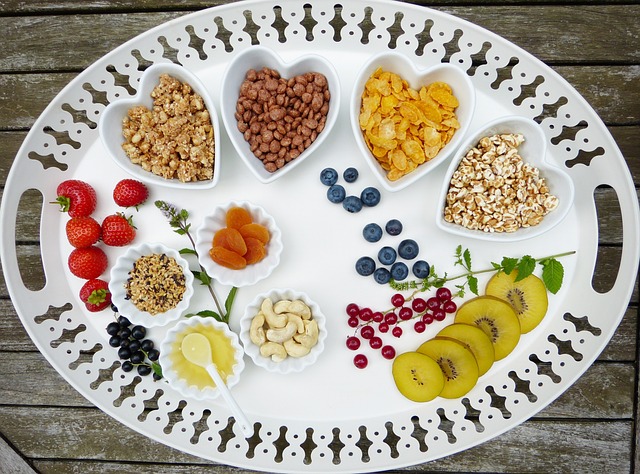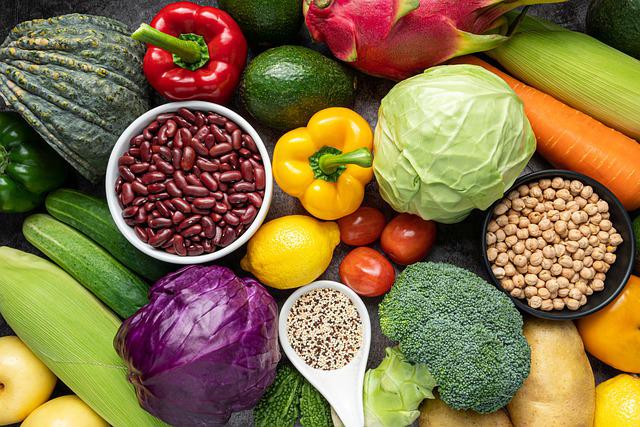-By: Bhavisha Changrani
Adopting a plant-based diet can offer a wide range of health benefits, including improved heart health, weight management, and reduced risk of chronic diseases. As the popularity of plant-based eating continues to grow, more people are turning to vegetarian or vegan diets, hoping to reap both nutritional and environmental rewards. However, as with any diet, a plant-based approach comes with its own set of challenges, particularly when it comes to obtaining essential nutrients that are typically found in animal products.
In this article, we will explore the key nutrients that individuals on plant-based diets need to pay attention to and offer practical tips for ensuring a balanced and well-rounded diet.

Key Nutrients to Watch in a Plant-Based Diet
1. Vitamin B12
Vitamin B12 is critical for maintaining healthy nerve function and producing red blood cells. It is one of the most prominent nutrients that can be lacking in a plant-based diet, as it is naturally found almost exclusively in animal-based foods. Vegans, in particular, may be at risk of deficiency, as plant foods do not naturally contain B12. A deficiency in this vitamin can lead to fatigue, nerve damage, cognitive impairment, and even anemia. Plant-based diets should depend on fortified foods such plant milks, breakfast cereals, and nutritional supplements to guarantee sufficient consumption of vitamin B12.Additionally, taking a B12 supplement can be a reliable way to meet daily needs. It is important to regularly monitor B12 levels, as deficiency symptoms can develop over time.
2. Iron
Iron is an essential mineral that plays a vital role in oxygen transport throughout the body. Although both plant and animal diets contain iron, the heme iron in animal products is more readily absorbed than the non-heme iron in plants. Therefore, individuals on plant-based diets need to be mindful of their iron intake to prevent deficiencies, which can lead to anemia.
Iron-rich plant-based foods include lentils, beans, tofu, quinoa, spinach, and fortified cereals. To improve the absorption of non-heme iron, it is recommended to pair iron-rich foods with vitamin C-rich foods, such as citrus fruits, bell peppers, or broccoli. This combination can significantly enhance the body’s ability to absorb iron, reducing the risk of deficiency.
3. Omega-3 Fatty Acids
Maintaining heart health, lowering inflammation, and promoting brain function all depend on omega-3 fatty acids.While omega-3s are commonly found in fatty fish, plant-based sources offer alternative options. Flaxseeds, chia seeds, walnuts, and hemp seeds are excellent sources of ALA (alpha-linolenic acid), a plant-based form of omega-3 However, ALA must be converted into EPA (eicosapentaenoic acid) and DHA (docosahexaenoic acid) by the body to exert the full benefits of omega-3s. This conversion process is often inefficient, and as a result, some individuals may not achieve sufficient levels of EPA and DHA through ALA alone. For those who are concerned about their omega-3 intake, algae-based supplements provide a direct source of DHA and EPA, ensuring that the body receives these essential fatty acids without the need for fish-based products.

4. Protein
Protein is a fundamental nutrient that is required for the repair and growth of tissues, as well as the production of enzymes and hormones. The idea that plant-based diets lack protein is among the most widespread misconceptions about them. While animal products are often seen as the go-to sources of protein, a wide variety of plant-based foods can provide ample amounts of protein.
Legumes such as lentils, chickpeas, and beans, along with soy-based products like tofu and tempeh, are excellent sources of plant protein. Additionally, whole grains like quinoa and oats, as well as seeds like chia and hemp, offer high-quality protein. To ensure that all nine essential amino acids are consumed (the building blocks of protein), it is important to incorporate a variety of protein-rich plant foods throughout the day. This will ensure a complete amino acid profile and optimal health.
Practical Tips for a Balanced Plant-Based Diet
To meet nutritional needs while following a plant-based diet, it is important to plan meals carefully. Below are some practical tips to help ensure a balanced, well-rounded diet.
1. Eat a Variety of Foods
A key principle of a balanced plant-based diet is variety. The more diverse your food choices, the more likely you are to meet all of your nutritional needs. A diverse selection of fruits, vegetables, whole grains, legumes, nuts, and seeds are all important components of a well-rounded plant-based diet.These foods provide a broad spectrum of vitamins, minerals, antioxidants, and fiber that support overall health.
To further enhance the nutritional value of meals, aim to eat the “rainbow” by incorporating different colored fruits and vegetables. Each color typically corresponds to a different set of nutrients, such as vitamins, minerals, and antioxidants, which can help protect against chronic diseases and promote vitality.
2. Focus on Whole Foods
Whole, minimally processed foods constitute the foundation of the most advantageous plant-based diets. Whole plant foods such as fruits, vegetables, whole grains, and unprocessed legumes are nutrient-dense and provide essential fiber, vitamins, and minerals. These foods help to maintain steady energy levels, promote digestive health, and reduce the risk of chronic diseases.
On the other hand, processed plant-based products—such as mock meats, snacks, and sugary beverages—often contain unhealthy fats, excessive sodium, and added sugars. While these products may be convenient, they should be consumed in moderation to avoid compromising overall health.

3. Plan Nutrient-Dense Meals
Planning meals that are rich in nutrients is essential to maintaining a balanced diet. Each meal should ideally contain a combination of protein, healthy fats, complex carbohydrates, and a variety of vitamins and minerals. For example, a nutrient-dense meal might consist of quinoa (a complete protein), avocado (a healthy fat), and a leafy green salad (rich in iron and calcium). This type of meal provides a balanced mix of macronutrients and micronutrients, supporting overall health.
When creating meals, aim to include foods that provide a wide array of nutrients, and try to vary your choices from meal to meal. This will ensure that you are consistently consuming a variety of nutrients that contribute to your well-being.
Consider Supplementing When Necessary
Although a well-planned plant-based diet can provide most of the nutrients required for health, supplementation may be necessary for certain vitamins and minerals. Vitamin B12, omega-3 fatty acids (EPA and DHA), and vitamin D are nutrients that may be more difficult to obtain from plant-based sources alone. Therefore, it may be beneficial to take supplements for these nutrients, particularly for those following a strict vegan diet.
Before starting supplementation, it is recommended to consult with a healthcare professional or registered dietitian. They can help assess any potential nutrient deficiencies and provide personalized recommendations for supplements. Additionally, a comprehensive multivitamin may help fill in any gaps in your nutrition.

Conclusion
A plant-based diet can offer a wealth of health benefits, including a reduced risk of heart disease, obesity, and type 2 diabetes. However, it is important to approach a plant-based diet with careful planning to ensure that nutritional needs are met. Certain nutrients, such as vitamin B12, iron, omega-3 fatty acids, and protein, may require more attention when following a plant-based eating pattern.
By eating a wide variety of whole plant foods, focusing on nutrient-dense meals, and supplementing when necessary, individuals can thrive on a plant-based diet. The key to success is maintaining balance, staying mindful of nutritional gaps, and seeking professional guidance when needed.
As plant-based eating continues to grow in popularity, understanding the dietary challenges and knowing how to overcome them will be vital to maintaining optimal health. By making educated food choices and addressing potential deficiencies, anyone can enjoy a balanced, sustainable, and healthful plant-based lifestyle.













